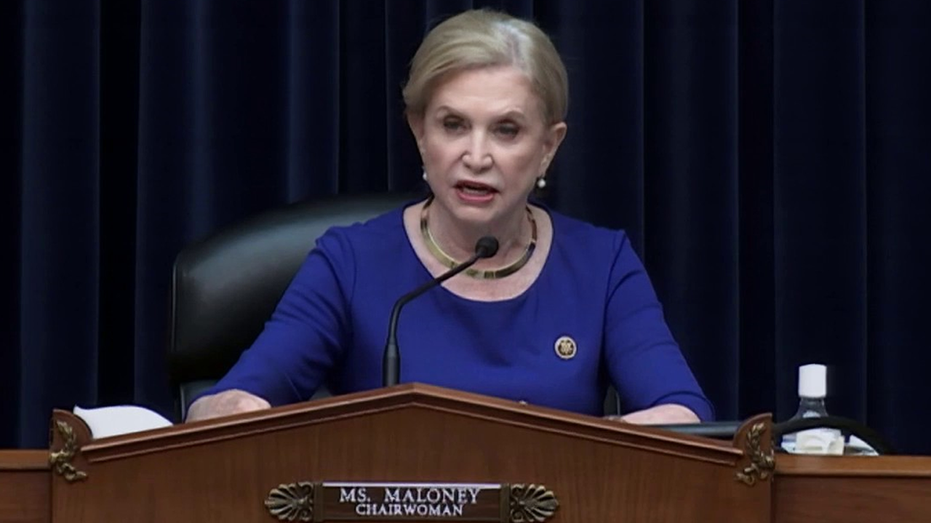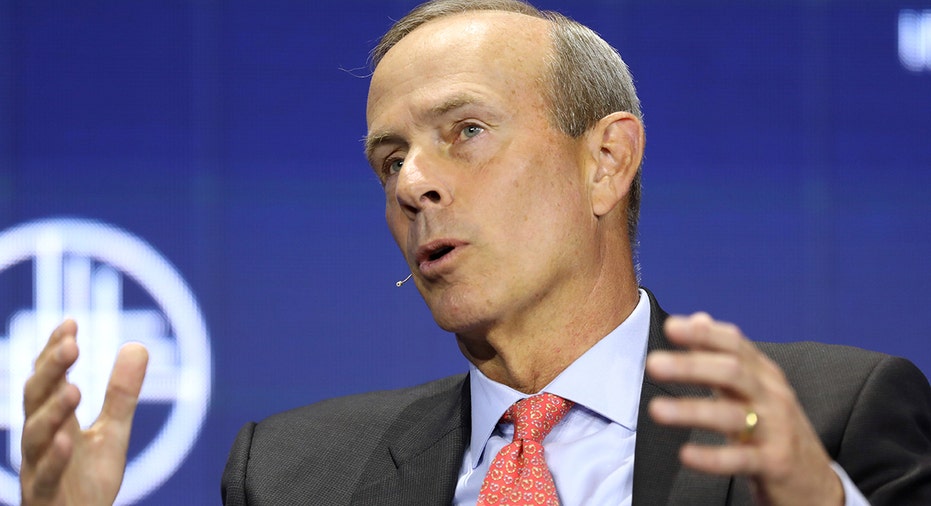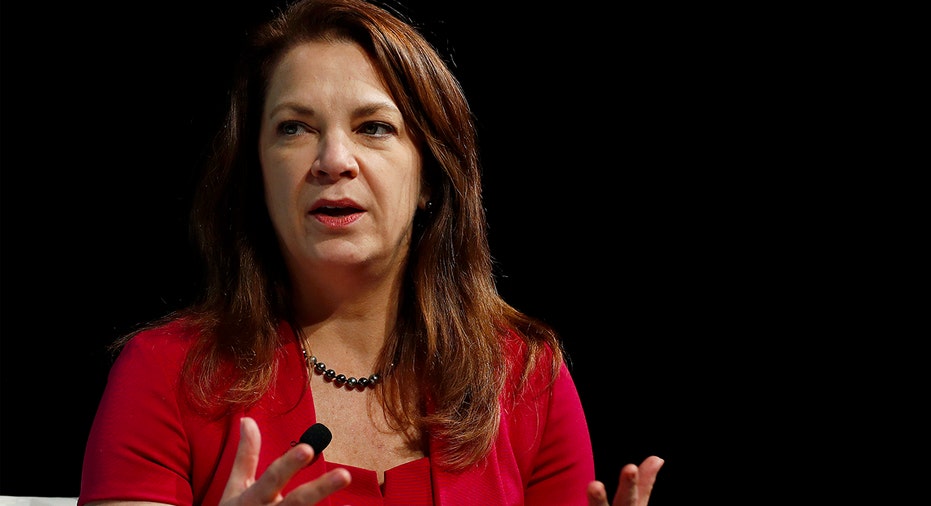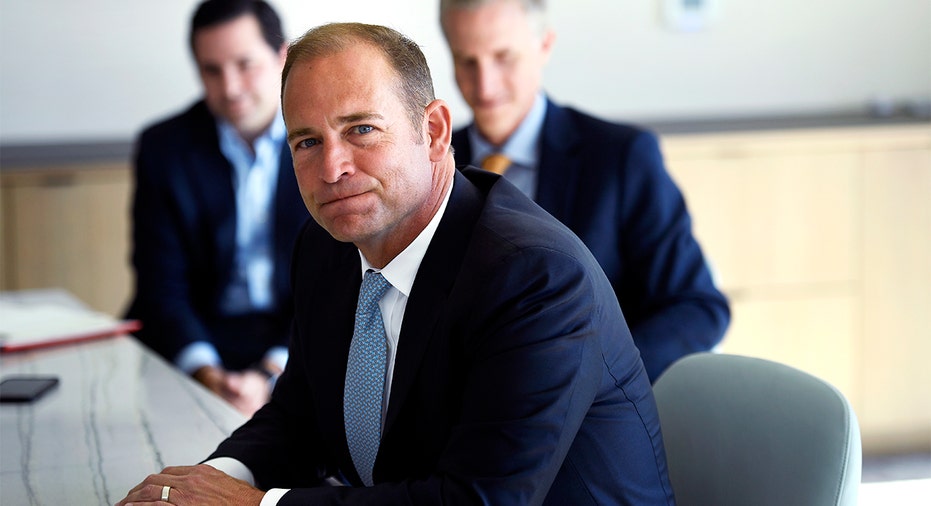Democratic lawmakers demand pledges, accuse oil companies of past climate lies in confrontational hearing
Rep. Ro Khanna asks, 'What do you have to say to Americans' children born into a burning world?'
House Democrats raked energy CEOs over the coals over for their companies' past responses to climate change, while the executives insisted that they have recently been – and continue to be – climate advocates who recognize the need to move toward a future with lower carbon emissions.
A House Oversight Committee hearing titled, "Fueling the Climate Crisis: Exposing Big Oil’s Disinformation Campaign to Prevent Climate Action," featured accusations of past cover-ups of climate science and comparisons between the energy industry and tobacco companies.
AMID SOARING GAS PRICES, DEMOCRATS TARGET OIL CEOS FOR ALLEGED CLIMATE LIES
"Today, the CEOs of the largest oil companies in the world have a choice: you can either come clean, admit your misrepresentations and ongoing inconsistencies, and stop supporting climate disinformation, or you can sit there in front of the American public and lie under oath," Environment Subcommittee Chair Rep. Ro Khanna, D-Calif., said during his opening remarks. Khanna went on to recall how tobacco executives once lied under oath, telling Congress that nicotine was not addictive.
"I hope Big Oil will not follow the same playbook as Big Tobacco," he added.

Darren Woods, CEO of ExxonMobil, testifies via video conference during a House Committee on Oversight and Reform hearing on the role of fossil fuel companies in climate change, Thursday, Oct. 28, 2021. (AP Photo/Jacquelyn Martin)
Khanna argued that the oil companies have long downplayed concerns of climate change despite being in possession of research supporting the idea that carbon emissions had a harmful impact on the environment, including climate change.
"What do you have to say to Americans' children born into a burning world?" Khanna asked. "Find it in yourself to tell the truth."
| Ticker | Security | Last | Change | Change % |
|---|---|---|---|---|
| XOM | EXXON MOBIL CORP. | 151.13 | +2.11 | +1.42% |
| CVX | CHEVRON CORP. | 182.60 | +1.74 | +0.96% |
| BP | BP PLC | 39.22 | +0.21 | +0.54% |
| RDS.A | NO DATA AVAILABLE | - | - | - |
At the hearing, top executives from Shell, ExxonMobil, BP and Chevron described how their companies are currently working to reduce carbon emissions, while continuing to produce fossil fuels during the transition to cleaner energy.
BIDEN SPENDING BILL TO INCLUDE $500B TOWARD CLIMATE ACTION, CHIEF OF STAFF SAYS
While Khanna and Oversight Committee Chairwoman Rep. Carolyn Maloney, D-N.Y., praised the current actions and positions of companies such as Shell, Exxon and BP, they grew frustrated that the executives would not make the exact statements they wanted.
Darren Woods, CEO of ExxonMobil, testifies via video conference during a House Committee on Oversight and Reform hearing on the role of fossil fuel companies in climate change, Thursday, Oct. 28, 2021. AP Photo/Jacquelyn Martin
"Do you agree climate change is a threat to our existence?" Maloney asked Shell president Gretchen Watkins.
"Chairwoman, I agree that climate change is one of the biggest challenges that we have in the world today, which is why at Shell we’re in action on providing lower and no-carbon products to our customers," Watkins responded. "We believe this is something we’re all in together, we need to work in collaboration with society, with governments, with other companies, and other industries."
Not satisfied with that statement, Maloney again asked if Watkins believed climate change is an existential threat to humanity.
"Yes or no?" she asked.
"I agree that this is a defining challenge for our generation. Absolutely," Watkins said.

Screenshot
Failing to get the exact response she was looking for, Maloney asked the panel if any of them disagreed that climate change poses an existential threat. None of the witnesses said they disagreed.
Maloney then called out ExxonMobil, telling current CEO Darren Woods that former CEO Lee Raymond said in the 1990s that the science was "inconclusive" that human actions had a "significant effect on global climate," and that evidence of global warming was not "air tight."
Woods said his company’s views have always been in line with mainstream scientific positions, and have evolved alongside them.
Maloney then referred to a report from Exxon scientists that supported the idea that increased carbon dioxide from the burning of fossil fuels could be detrimental to the planet and impact climate change. She also recalled that scientists from Exxon told Congress in the past that the company promoted views that their scientists "knew were wrong."
Woods maintained that Maloney was missing the full context of what the scientists had said, and insisted that the company’s positions were in line with the "general consensus" of the scientific community, and continue to change accordingly.
CLICK HERE TO READ MORE ON FOX BUSINESS
Khanna later asked Woods to state that Raymond was wrong or mistaken in making his past statements. Woods would not denounce his predecessor but reiterated that Raymond’s words were a product of a different time.
Later on, Khanna called out the American Petroleum Institute for lobbying against electric vehicles, even though companies like Shell and BP openly support electric vehicles as the way of the future. With executives from the oil companies and the API all testifying – albeit virtually – Khanna tried to force a confrontation.
"Will you take the opportunity today to tell [API CEO Mike Summers] that his opposition to electric vehicles is wrong and that instead of opposing tax credits for electric vehicles he should support them?" Khanna asked Watkins.
Khanna then pointed to how Watkins said she supports a methane fee, which API opposes.
"Can you please, please tell API to stop the advertising on the methane fee?" Khanna pleaded.
"There are several places where we are not fully aligned with the API," Watkins explained, only for Khanna to interrupt.
"Please just tell him to stop," Khanna said. He then asked the same of BP CEO David Lawler.
"He’s sitting right next to you on the virtual screen, just say stop!" the congressman demanded.
GET FOX BUSINESS ON THE GO BY CLICKING HERE
Failing to elicit the desired response, Khanna turned to Chevron CEO Michael Wirth, who also did not bite.
"We engage in discussions on many policy issues at API," Wirth said. "Members don’t always agree on everything."
Khanna then asked if any of the companies would vow to leave the API if they did not cease their opposition to electric vehicles. None of them agreed. He then turned back to Watkins, asking if she would commit to stop funding groups that spread misinformation.
"What I’ll commit to is to continuing to be an active member of the API," she said.
























